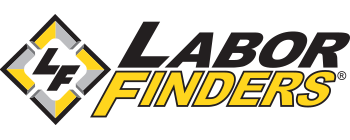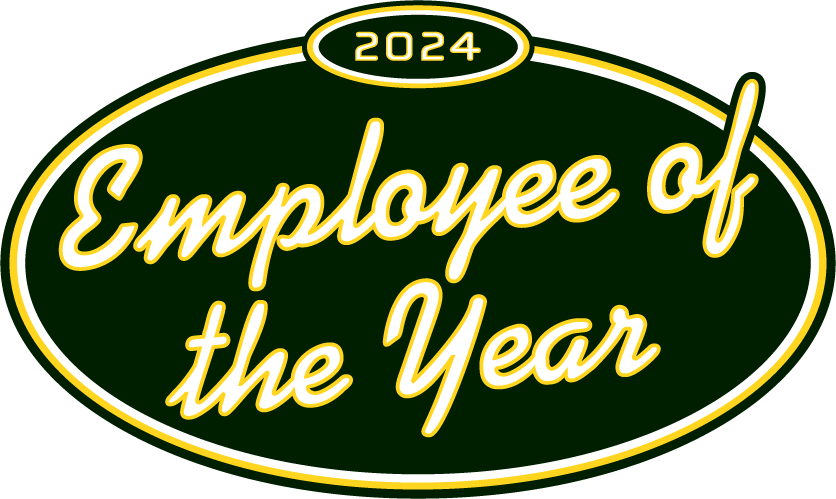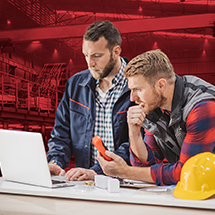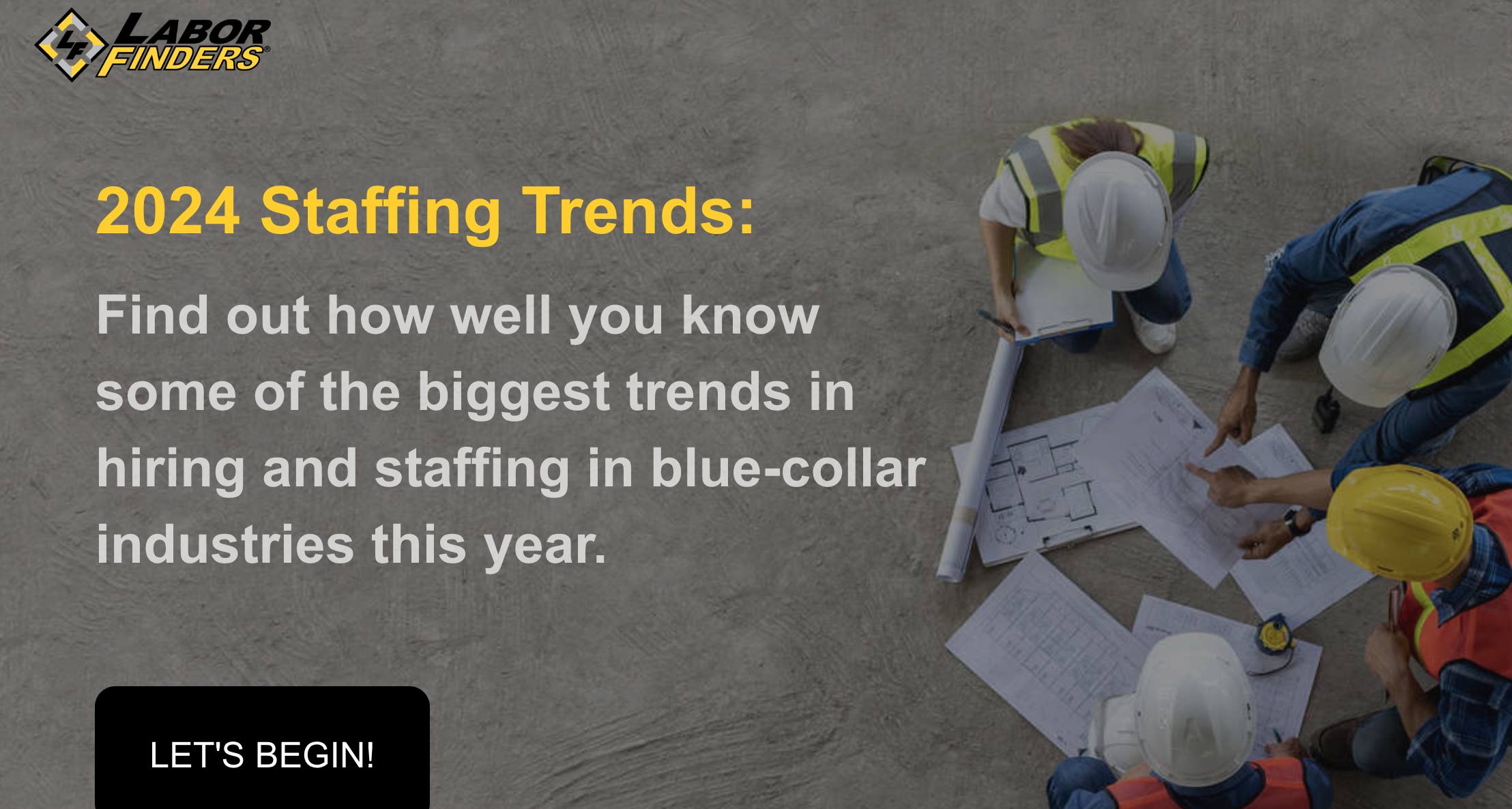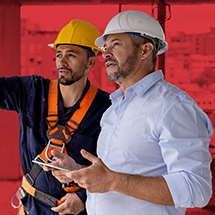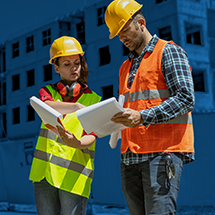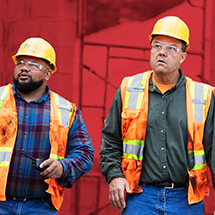-
Job Seekers
X
Job Seekers
Whether you're looking for a temp job or a permanent career, Labor Finders has you covered!
-
Explore
- How it works
- Industries
- Blog
- Locations
- Job Search
You May Also Be Interested In

2024 Employee of the Year
Learn more about our amazing Employee of the Year
-
-
Employers
X
Employers
Let us help you find the workers you need, when you need them.
You May Also Be Interested In

2024 Staffing Trends Quiz
Construction Staffing Trends Quiz
-
Industries
X
Employer Industries
Ready to staff your next project? Our staffing experts has the knowledge and the workers to cater to your unique staffing needs.
In this Section:
Job Seeker Industries
From construction to waste management, we have job openings in whatever industry you’re interested in.
In this Section:
-
About
X
About You
Getting matched to the right job, gaining the flexibility you want, making an impact in your community - at Labor Finders, it’s all about you!
-
You may also be interested in
- About Us
- Job Search Results
- Find an Office
- How it works
- Blog
About Us
With almost 200 offices nationwide, we’ve been putting people back to work for over 40 years. See why we’re a leader in the blue-collar staffing industry.
-
You may also be interested in
- About Us
- Media Center
- Video Library
- Leadership Team
- Careers
- In The Community
- History
-
- Location
Safety
3 Mistakes You Don’t Want to Make Operating Cranes

When very large loads need to be moved from one place to another, a crane can get the job done. If a crane operator doesn't do so safely, it can lead to very serious and even fatal accidents. Here are three mistakes you don’t want to make when operating cranes.
Not Inspect the Crane Before Work
Many accidents can be avoided by inspecting any type of equipment, like overhead cranes, before starting work. If a part is damaged or not working properly, everyone on a worksite is at risk of injury or even death. A malfunctioning hoist for example, can lead to the materials it’s carrying to fall on the property and people below it. So make it a point to not only double check a crane before you start using it, but also to perform regular maintenance to keep it in working order. What are some things you should look out for? Broken wires or strands to the rope structure, deformed hooks, and damaged latches. Make sure the braking system is working properly before driving the crane to the desired location. If you find any of these or something else you feel that would keep a crane from operating smoothly is not up to par, contact your supervisor immediately so the proper repairs can be made.
Use a Crane Too Close to Electrical Lines
OSHA reports that almost half of overhead crane accidents happen when they come into contact with power lines. It happens when a boon or hoist comes into contact with them while moving materials. Just touching a crane or even holding the electrical remote that powers a crane that has come in contact with a live line can electrocute a worker. To stay safe, don’t operate cranes within a 10-foot radius of these power lines. Workers should treat all power lines as energized unless an electrical company says otherwise. It’s also a good idea to drive slowly to avoid touching these lines accidentally.
Overload the Crane
Another scary statistic according to OSHA when it comes to crane safety is that 80 percent of all crane structural failures are due to overloading a crane. Going over the equipment’s load capacity can cause the crane to get damaged as well as increase the probability of dangerous incidents, like dropping the materials it’s carrying, from happening. To avoid putting undue stress on this heavy equipment, don’t do things such as swinging the load while hoisting it, side-loading a boom or lifting materials that are just too heavy for the crane to handle.
At Labor Finders we live by the motto “Safety, Respect and Appreciation”. To find your next job opportunity, click here to find your local office.

